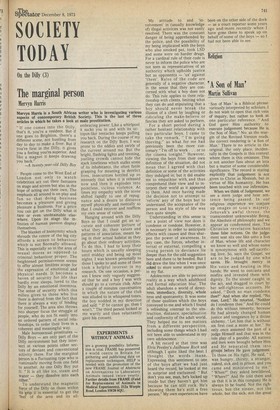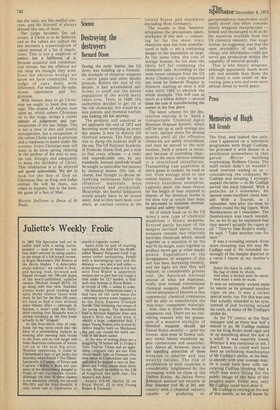Religion
'A Son of Man'
.Martin Sullivan
'Son of Man' is a Biblical phrase variously interpreted by scholars. I do not wish to open that rich vein of inquiry, but rather to look at one particular reference. "And God gave Him authority to execute judgement because He is the Son of Man." No: as the margin of the Revised Version reads, the correct rendering is 'a Son of Man.' There is no article in the original, the only place, incidentally in the Gospels in this context where there is this omission. This is not another fuss about an iota but a matter of some considerable significance. The record is stating explicitly that judgement is not ,given to Christ as Messiah, but in virtue of His humanity. He has been touched with our infirmities.
When we think of Judgement, we see a stern judge and hear sentence being passed. In our religious experience we conjure up images of Ciod's majesty, Jehovah's awful throne, the transcendent unknowable Being, the Absolute of philosophy and we appear as condemned men. The Christian revelation banishes these false notions. On the judgement seat sits one like unto a Son of Man, whose life and character we know so well and whose name is synonymous with self-sacrificing love. So, says the Gospel, we are to be judged by one who saves. He brought mercy in His voice and healing in His hands; He went to outcasts and misfits and invested them with dignity. To the sinner caught in the act, and dragged to court by her self-righteous accusers. He asked, " Doth no man condemn thee?" And when she replied, "No man, Lord," He retorted, "Neither do I condemn thee." And He could do this without temerity, because He had already changed human justice and vengeance by a divine alchemy. "Let him that is without sin first cast a stone at her." He only once assumed the part of a judge Himself and that was in the role play of a parable. All nations and men were brought before Him and He separated them into groups before He gave judgement. To those on His right, He said, "I was hungry, thirsty, a stranger, naked, sick and in prison, and you came and ministered to me." "When?" they asked bewildered, "Where?" And He told them and us that it is in this company He is always to be found. Not the righteous, but the sinner, not the whole, but the sick, not the great _ .
but the least, are His etetal concern, and He Himself IS ,always dressed like one of them. ?' The judge becomes the advocate, if Christ is to be i5elieved, and as the tables are tailed the law becomes a transvaliation of values instead of a list o regula tions. This is not a netion of justice, but a fulfilmen qf it, because acquittal and condemna tion remain, but the offences are not what we thought they were. Even the obvious wrongs we know we have committed, this judge of ours deals with differently. For evidence He substitutes repentance and forgiveness. With twenty days to go Christ
mas we ought to heed this message. The season of Advent now upon us, which ushers Christmas on to the stage, brings a colder climate of judgement and contemplation of the last thibgs. This is not a time of dire an'd woeful introspection, but a recognition of the values Christ came to proclaim and a readiness to stand under His scrutiny. Every Christian man will want to do some spring cleaning in the parlour of his soul to enable him, fittingly and adequately, to •keep the birthday of Christ. This celebration is to be enjoyed sub specie aeternitatis. We are to look for the Son of God on Christmas Day as King and Judge eternal. He will be there, not robed in majesty, but in the humble guise of a Son of Man.
Martin Sullivan is Dean of St Pauls.











































 Previous page
Previous page